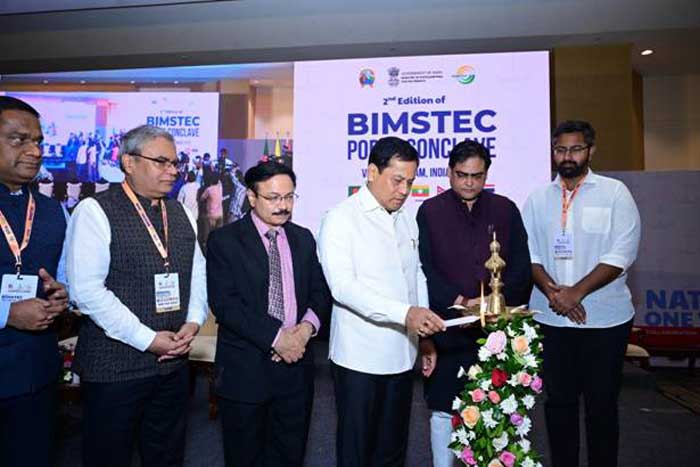Inaugurating the two-day BIMSTEC Ports Conclave, Sarbananda Sonowal also announced the establishment of a Sustainable Maritime Transport Centre aimed at catalysing maritime policies, advancing digital and green transformation, and building the skills and capacity of the region’s maritime workforce.
Given India’s “Neighbourhood First” policy, BIMSTEC could serve as a powerful springboard to unlock the immense economic potential of the blue economy across the Bay of Bengal region, Sarbananda Sonowal, Union Minister for Ports, Shipping and Waterways, has said.
Calling BIMSTEC members—Bangladesh, Bhutan, India, Myanmar, Nepal, Sri Lanka and Thailand—key partners in regional prosperity, Sonowal stated, “We want this platform to enhance collaboration among all member nations for strengthening port-led industrialisation, digital integration and skill development, which in turn boost cruise tourism and foster coastal economic zones.”
Sonowal was speaking at the second edition of the BIMSTEC Ports Conclave in Visakhapatnam on Monday. Building upon the momentum of the first conclave, the meet aims to operationalise the recently signed BIMSTEC Agreement on Maritime Transport Cooperation (AMTC), facilitate dialogue on port-led development, and foster deeper integration in maritime trade, logistics, cruise tourism and skill development.
“Together, we aim to create a seamless and efficient network of ports that can serve as engines of growth. Through joint feasibility studies, PPP (public-private partnership) models and upskilling our maritime workforce, we can transform the region into a thriving hub of global trade, tourism and sustainable economic progress,” Sonowal added.
Sustainable Maritime Transport Centre
Sonowal also announced the establishment of a BIMSTEC Sustainable Maritime Transport Centre under the Indian Ocean Centre of Excellence for Sustainable Maritime Transport (IOCE–SMarT) at the Maritime Training Institute in Mumbai.
Underlining its role in operationalising the AMTC, he said the centre would catalyse maritime policies, digital and green transformation, and capacity building across the region.
“By fostering collaboration and innovation, it will help reduce trade costs, enhance connectivity and position the Bay of Bengal as a vibrant, sustainable hub for regional and global trade.”
Referring to the Kaladan Multi-Modal Transit Transport Project, Sonowal noted that it was not just a bilateral initiative with Myanmar, but a transformative gateway connecting India’s Northeast to the Bay of Bengal for seamless connectivity with BIMSTEC nations.
“By linking ports, trade corridors and value chains, it has the potential to catalyse inclusive growth, deepen integration with our neighbours and bring the Northeast closer to the global marketplace.”
He said the project could truly become a cornerstone of the region’s shared vision for prosperity and sustainable development through collaborative planning and policy alignment.


